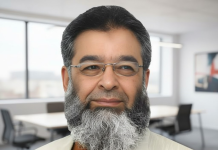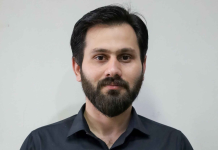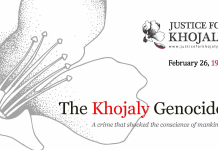By: Qamar Bashir
On May 28th, Nawab Kaifi, a distinguished veteran in the realms of production, acting, journalism, and media ownership, shared a poignant song commemorating the historic atomic bomb tests of Chagai. The song vividly depicted scenes of horsemen and common folk, adorned with flags, converging towards the blast sites, evoking a powerful imagery of unity and national pride. As a fellow producer hailing from Balochistan, I couldn’t help but query the portrayal of horsemen, seemingly transporting the event back to antiquity, and the depiction of missile firings in a setting devoid of missile launch facilities.
In response to my inquiry, Mr. Kaifi promptly clarified that the song, titled “MOJZA,” was a recipient of the National Award. It was a collaborative effort supported by ISPR and championed by Nawaz Sharif, the Prime Minister at the time of the nuclear tests in 1998.
In the video, two pivotal figures in orchestrating this historic achievement were depicted: Nawaz Sharif, the Prime Minister at the time, and Dr. Abdul Qadeer Khan. Both of these individuals played instrumental roles in realising this monumental feat, which fortified the defence capabilities of the nation. Remarkably, the very country which had endured the scars of three previous wars found itself transformed after May 29, 1998. With its newfound nuclear deterrent, Pakistan’s sovereignty and territorial integrity stood fortified, deterring any potential aggressors from daring to challenge its defences. Thus, the sacrifices and efforts of Nawaz Sharif, Dr. Abdul Qadeer Khan, and countless others ushered in an era of unparalleled security and resilience for the nation, forever altering its geopolitical landscape.
However, their contributions were soon overshadowed by the ominous spectre of retribution, serving as a cautionary tale for the 250 million citizens of Pakistan and the global community at large.
The tenure of first hero Mr. Nawaz Sharif’s as Prime Minister of Pakistan was abruptly interrupted on October 12, 1999, when General Pervez Musharraf orchestrated a military coup, relegating Sharif from the apex of power to the depths of political obscurity transforming him from head of the government to an alleged hijacker within the span of a single day. Mr. Nawaz Sharif was swiftly apprehended, stripped of his office, and incarcerated. Subsequent legal proceedings saw him convicted on charges of hijacking and terrorism in April 2000, resulting in a life sentence. The weight of this verdict, coupled with the ignominy of imprisonment, bore heavily upon Sharif, marking a stark reversal of fortune for the once-powerful leader. However, in December 2000 Sharif was granted clemency and permitted to go into exile thus teaching him a good lesson to portray as a hero.
The narrative of Dr. Abdul Qadeer Khan, often hailed as the father of Pakistan’s atomic bomb, is a poignant tale of heroism overshadowed by adversity. His unwavering dedication and groundbreaking contributions to Pakistan’s nuclear program earned him reverence and admiration across the nation, as his efforts culminated in Pakistan becoming the first Muslim country to possess nuclear capabilities. However, amidst the accolades lay a darker undercurrent of humiliation and persecution.
Dr. Khan’s legacy was marred by coerced confessions and relentless surveillance, casting a shadow over his towering achievements. In a moment of poignant reflection, he lamented returning from a life of comfort and acclaim in Holland to devote his intellect and energies to his homeland, only to be met with ingratitude and scorn. His words serve as a sobering reminder of how easily we can turn our heroes into zeroes, tarnishing their legacies with the weight of indifference and betrayal.
One person who was not in the video was Zulfiqar Ali Bhutto, a statesman of remarkable vision and determination who played a pivotal role in laying the cornerstone of Pakistan’s nuclear research and development program. His unwavering commitment to national security was underscored by a resolute vow to pursue atomic capabilities, even at the cost of enduring profound sacrifices, famously stating that Pakistan would “eat grass” if necessary to attain nuclear power. Bhutto’s aspirations were abruptly curtailed by a military intervention by General Zia ul Haq on 5th July 1977. On April 4, 1979, Bhutto met his tragic demise, as he was executed by hanging—a verdict that remains contested. Zulfiqar Ali Bhutto, the third most significant figure in Pakistan’s odyssey to nuclear prowess was deprived of his life, rather than to be cherished and held in high esteem.
Pakistan’s prime minister in the late 1980s and early 1990s was Benazir Bhutto. She was the first Muslim female Prime Minister and one of few worldwide. She was Prime Minister twice: 1988–1990 and 1993–1996 and relentlessly supported the nuclear programme. She ambraced Shahadat in a Rawalpindi political rally suicide attack on December 27, 2007.
Imran Khan is one of Pakistan’s most famous cricketers and regarded as one of the finest all-rounders in the sport’s history who founded the Tehreek-e-Insaf (PTI) in 1996, and after winning the general election in July 2018, became Pakistan’s 22nd Prime Minister and is now behind bars.
A nation that respects its heroes, both civilian and military, fosters a strong sense of unity, pride, and national identity. Honouring those who have made significant contributions through acts of bravery, innovation, or service reinforces the values and principles upon which a nation is built. This recognition encourages others to strive for excellence, promoting a culture of respect and admiration for those who positively impact the country’s progress.
Conversely, disrespecting heroes can lead to a loss of national pride and disillusionment and decline in motivation as future generations may be discouraged from pursuing paths of service and innovation.
To undo the harm caused by disrespecting heroes, a nation must publicly acknowledge past mistakes and offer sincere apologies, establishing systems to honour and commemorate their contributions.
Educational reforms should integrate the stories and achievements of national heroes into the curriculum, ensuring that future generations respect and learn from their legacies.
Community engagement, robust support for veterans and contributors, and promoting positive narratives through media and public platforms are essential steps.
By taking these measures, a nation can repair psychological and societal damage, fostering renewed unity, pride, and motivation for collective progress and development.
—
By: Qamar Bashir
Former Press Secretary to the President
Former Press Minister to the Embassy of Pakistan to France
Former MD, SRBC

















